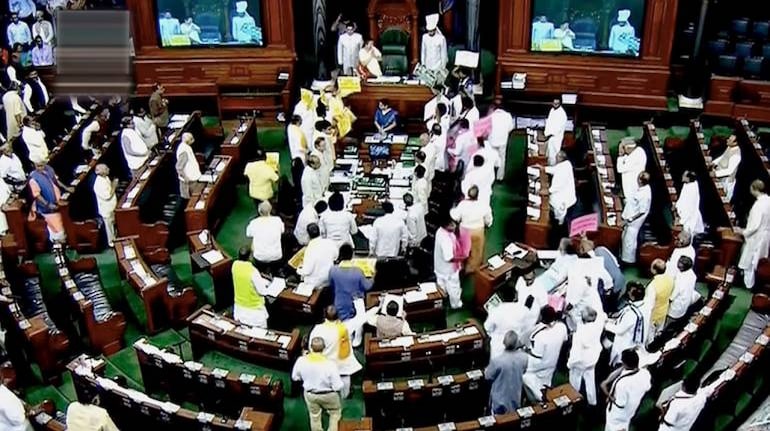Government Withdraws Controversial DNA Technology Bill Amidst Public Outcry

Government Withdraws Controversial DNA Technology Bill Amidst Public Outcry
In a surprising turn of events, the Indian government has decided to withdraw the contentious DNA Technology (Use and Application) Regulation Bill from parliament today. The decision came amidst widespread public outcry and heated debates, both within the legislative chambers and across the country. The Bill, which aimed to regulate the use of DNA technology for various purposes, has been a subject of intense controversy, with concerns raised over privacy, civil liberties, and potential misuse of personal genetic information.

The DNA Technology Bill was introduced with the noble intention of using DNA technology for the identification of missing persons, solving criminal cases, and establishing the identity of unknown deceased individuals. However, critics argued that the bill’s provisions could have serious implications on individual privacy, data protection, and the potential for misuse by authorities.
One of the most contentious aspects of the bill was the provision allowing law enforcement agencies to collect DNA samples not only from convicts but also from suspects. This raised alarm bells among civil rights advocates and privacy experts who feared that it might lead to unwarranted invasion of privacy and unchecked surveillance.
Furthermore, the bill proposed the establishment of a National DNA Data Bank, where DNA profiles of individuals would be stored. While proponents of the bill argued that this database would be crucial in solving crimes and identifying victims, opponents were skeptical about the security measures in place to protect this sensitive information. They feared that such a database could be vulnerable to hacking and potential misuse by malicious actors.

Another bone of contention was the lack of clarity regarding the use of DNA data for non-criminal purposes. The bill, in its original form, allowed for the use of DNA information in matters relating to civil disputes and other non-criminal cases. This raised concerns about potential discrimination and misuse of genetic information in various spheres of life, including employment, insurance, and social services.
The government’s decision to withdraw the bill came after extensive discussions and consultations with various stakeholders, including experts from the scientific community, civil society organizations, and the general public. The Prime Minister’s Office released a statement citing the need for broader public consensus and acknowledging the legitimate concerns raised by citizens across the country.
Health Minister, Dr. Rajesh Verma, who was among the bill’s key proponents, expressed regret over the withdrawal but emphasized the government’s commitment to address the concerns raised. He asserted that the bill was intended to be a progressive step towards bolstering law enforcement capabilities and serving the interests of justice.

However, the decision to withdraw the bill has been welcomed by many opposition parties and civil rights groups who have been vociferously campaigning against it. Leaders of these groups hailed it as a victory for democracy and the power of public opinion. They emphasized the need for a more comprehensive and inclusive approach to address the challenges posed by DNA technology while safeguarding individual rights and liberties.
The future of DNA technology regulation in India remains uncertain as the government now faces the task of reevaluating and redrafting the bill to address the concerns raised. The withdrawal of the bill provides an opportunity for the government to engage in a more open and transparent dialogue with experts and the public at large to strike a balance between the potential benefits of DNA technology and the protection of fundamental rights.
With the DNA Technology Bill withdrawn, the spotlight now falls on what the government’s next course of action will be regarding DNA technology regulations. The public’s concern for privacy and civil liberties has been at the forefront of the debate, and the government must navigate these waters delicately to find a solution that addresses both the potential benefits and risks associated with DNA technology.
One of the crucial steps that the government can take is to initiate a nationwide public consultation process. By engaging with citizens, civil society organizations, legal experts, and scientists, the government can gain valuable insights and feedback on the challenges and possible solutions related to DNA technology regulations. This inclusive approach would ensure that all voices are heard, and diverse perspectives are taken into account while crafting the future legislation.
In conclusion, the withdrawal of the DNA Technology Bill has been a turning point in India’s legislative landscape. It has underscored the importance of public opinion and the need for inclusive decision-making in matters that impact fundamental rights.
As the government embarks on the journey of this redefining technology regulations, the focus must remain on striking a delicate balance that respects both the potential benefits and risks associated with DNA technology. Through transparent consultations, robust data protection, and a commitment to safeguarding privacy, India can chart a path forward that inspires confidence and secures the future of DNA technology regulation in the country.




